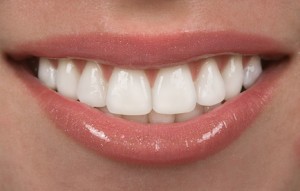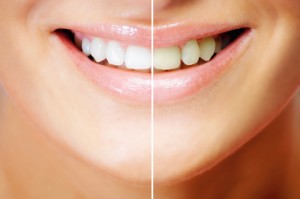NORTHAMPTON, EAST LONGMEADOW AND SPRINGFIELD, MASSACHUSETTS-You may suspect that diabetes, asthma or obesity is the most common health problem in kids. Think again. Cavities are the number one chronic disease children suffer from.
“One in four children has at least one cavity,” said Dr. Vincent Mariano, aSpringfield MA dentist at EMA Dental. “This ratio has worsened over the last several decades due to the rise in popularity of sugary beverages and food, and poor oral health habits.”
Even though your children eventually lose their teeth, the oral health habits they develop at a young age set the stage for the condition of their teeth and mouth down the road.
The good news is that cavities are avoidable. There are several oral health activities you can help your children learn and do from an early age.
Below are a few simple oral health habits that can aid your children in developing a healthy, beautiful smile:
- Children two years of age and older should use a pea-sized amount of fluoride toothpaste when they brush at least twice a day.
- Monitor your children’s brushing, making sure that they brush for approximately two minutes and reach their back teeth.
- Limit your kids’ intake of sugary foods and beverages, including juices and cookies.
- Offer them fluoridated water, which can help protect their teeth from cavities.
- Schedule your children regular visits at a general dentistry practice, like Northampton-located EMA Dental. These appointments can help ensure that your kids’ oral health is headed in the right direction, and possibly provide early detection of future need of iBraces or other orthodontic programs.
- Supply them with a soft-bristled toothbrush that will not damage teeth or gums.
- Ask your local dentist if dental sealants are right for your kids. Sealants, which are made of a composite material, are applied to the surface of teeth and protect them against decay.
- Abstain from sharing utensils, food, straws or other items that go into the mouth with your children because the bacteria that causes oral diseases can be transmitted from you to your kids.
If you do not help your children take care of their teeth until they are able to and promote a regular oral health routine once they are responsible for their smile, your kids may need serious care, like dental implants, in the future.
Regardless of whether you have been helping your children maintain good oral health, it is never too late to get them on the right track, believes Northampton dentist, Dr. Mariano. Your dentist can monitor your kids’ progress over time and create an oral health regimen that is tailored to their specific needs.
© 2012 Master Google and EMA Dental group. Authorization to post is granted, with the stipulation that EMA Dental group and Master Google are credited as sole source. Linking to other sites from this article is strictly prohibited, with the exception of herein imbedded links.

 Teeth Whitening Northampton, MA-What do you rank as the most important social assets? They could include how someone dresses, their posture or how firm their handshake is.
Teeth Whitening Northampton, MA-What do you rank as the most important social assets? They could include how someone dresses, their posture or how firm their handshake is. Northampton, MA – Patients of EMA Dental are invited to bring their friends, family and colleagues to a special “EMA After Dark” event on September 25 to learn more about Refresh Whitening Spa.
Northampton, MA – Patients of EMA Dental are invited to bring their friends, family and colleagues to a special “EMA After Dark” event on September 25 to learn more about Refresh Whitening Spa. Northampton, MA – Sometimes in dentistry, even a tooth cannot be restored. In that case, there are a couple of options –
Northampton, MA – Sometimes in dentistry, even a tooth cannot be restored. In that case, there are a couple of options – Northampton, MA – Visiting an esthetic dentist to restore your smile can give you the confidence you need to smile proudly. But it also has an additional benefit – improving the form and function of your teeth.
Northampton, MA – Visiting an esthetic dentist to restore your smile can give you the confidence you need to smile proudly. But it also has an additional benefit – improving the form and function of your teeth. Northampton, MA – As we age, we may find our smiles lacking the bright white shine they once had. There are several factors that can lead to this, but not to worry – there are also many solutions to give you back a sparkling smile.
Northampton, MA – As we age, we may find our smiles lacking the bright white shine they once had. There are several factors that can lead to this, but not to worry – there are also many solutions to give you back a sparkling smile.
2 thoughts on “8 Tips for Helping Your Children Avoid Cavities”